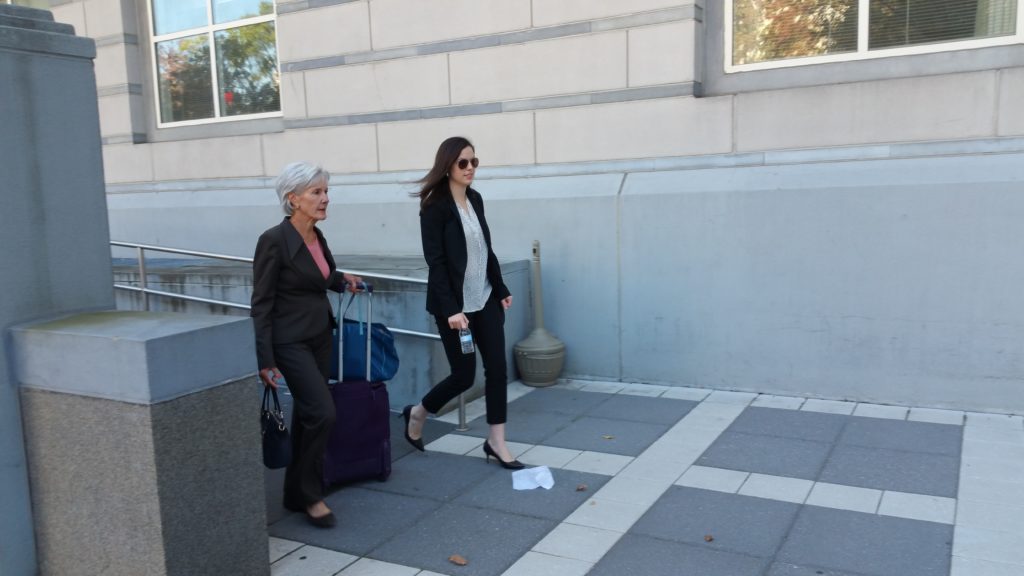THE MENENDEZ TRIAL: Sebelius In and Out

NEWARK - Former Department of Health and Human Services Secretary Kathleen Sebelius took the stand in the corruption trial of Sen. Bob Menendez this afternoon, testifying the trigger for her 2012 meeting with the senator was clear: the Medicare fraud case against Dr. Salomon Melgen.
Sebelius said the meeting in the Capitol building brokered by then-Senate Majority Leader Harry Reid was the only time one member of Congress set up a meeting for another, and that it was the only time in more than five years as secretary she was involved in such a specific policy discussion.
The meeting ended with Sebelius sticking to her department’s billing practices and leaving Menendez unhappy.
“I think it was not a very satisfactory meeting,” Sebelius testified. “We came in with a dispute and left with a dispute after 30 minutes.”
Sebelius never heard from Menendez again about the issue, she said. In several encounters with Health department officials over three years, working his way up the chain of command until he reached Sebelius, Menendez and his staff had argued Medicare had contradictory billing rules for similar drugs.
“I thought the policy was clear,” Sebelius said on the witness stand. “While language had been reissued after the Centers for Disease Control had issued an advisory…Medicare did not pay twice for the same product.”
Melgen had over billed Medicare to the tune of $8.9 million by stretching vials of solution so that they could be used on more than one patient, then double-, triple-, or quadruple-charging Medicare. He was convicted of Medicare fraud in Florida earlier this year.
Sebelius testified she could not remember if Melgen’s name came up during her conversation with Menendez and Reid, but a previous witness said Melgen was mentioned by name by Reid but not Menendez.
The former Cabinet member was on the stand for 20 minutes of direct testimony and barely half that time of cross-examination that often felt rushed due to a desire to allow Sebelius to fly back home to Kansas and not return for another day of testimony. Often pausing for long stretches before answering questions and at times appearing exceeding uncomfortable on the witness stand, Sebelius told jurors little they did not already know.
Sebelius did confirm that Menendez stuck to the broader outlines of Medicare’s policies involving multi-dosing, however, which is key to the defense’s claim Menendez was doing his work as a senator and not a shill for one person.
“My definite impression was he was very concerned the policy by (the Centers for Medicare and Medicaid) was inconsistent, was unfair and should be changed,” Sebelius said of Menendez.
Yet it was clear to Sebelius it was Melgen’s plight had ignited Menendez’s interest.
“I don’t know what he wanted other than me to do something,” she said.
In fact, Menendez had called her office a year prior and left his cell phone number for a call back. Since Melgen’s case was on appeal within the department at the time, Sebelius’ staff told her not to return Menendez’s call, she said.
By early August of 2012, the appeal process meant Melgen’s case was before an outside agency, which was why Sebelius said she took the meeting at Reid’s invitation.
“That was the issue, my understanding was, why we were in the room and what was discussed,” she said.





